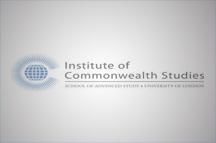America’s decision seventy years ago to drop atomic bombs on Japan introduced Hiroshima and Nagasaki to the international lexicon. “Yesterday we clinched victory in the Pacific, but we sowed the whirlwind" wrote Hanson Baldwin in the New York Times. That whirlwind was sown through misinformation, lies and secrets, and scattered the seeds of further secrecy and denial. It spurred the development of the United Nations, as nations sought to find mechanisms of managing this new reality and the terrible fears it engendered.
Over these years, there have been a number of moments – such as the Cuban Missile Crisis – when it seemed that the horror of Hiroshima would be repeated, but the key actors pulled back from the brink. Efforts have been made to wind back from only minutes to midnight, as illustrated by the hands of the ‘Doomsday Clock’. This most dangerous period in the history of humankind has been variously reported and recorded, but in incomplete, partial and deceptive ways. Do these gaps in public knowledge and the historical record diminish the possibility of informed debate and increase the risk of wilful deception and ensuing catastrophe?
This conference will explore the contestation over knowledge about nuclear bombs and warfare, including the impact and roles of misinformation and secrecy, from the start of the Second World War until the present day. The focus will be on nuclear weapons but will not exclude the issue of nuclear energy if appropriate. A concluding Round Table will provide an opportunity to review where we are now, and where we are going. Contributors will include academics, public servants, and activists.
Joint organisers
Institute of Commonwealth Studies
School of Advanced Study
University of London
United Nations Association Westminster Branch
Draft Programme
09.30am - Registration
10am - Session 1: After Hiroshima: redefining fear, living in denial
Chair: Professor Philip Murphy, Director, Institute of Commonwealth Studies, School of Advanced Study, University of London
Professor Peter Kuznick, Professor of History, Director, Nuclear Studies Institute, American University, Washington
"The 'Greatest Thing in History' or the Most Reckless? Reflections on the 70th Anniversary of the Atomic Bombings of Hiroshima and Nagasaki”
Professor Matthew Jones, Department of International History, London School of Economics and Political Science
“The legacies of Hiroshima for US-Asian relations in the early Cold War”
10.50am - Q and A
11.20am - Coffee
11.40am - Session 2: Back from the Brink – So Far
Chair: David Wardrop, Chairman, United Nations Association Westminster Branch
Andreas Persbo, Executive Director, Verification Research, Training and Information Centre (VERTIC)
“Recognising the dangers: nuclear states agree new rules” TBC
Bruce Kent, Vice-President, Campaign for Nuclear Disarmament
“Opposition voices, national and international”
12.30pm - Q and A
1pm - Keynote address
Chair: Professor Henning Melber, Director Emeritus, Dag Hammarskjold Foundation, Uppsala
Dr. Akiko Mikamo, President, US-Japan Psychological Services, author of Rising from the Ashes: A True Story of Survival and Forgiveness from Hiroshima
“Rising from the Ashes - Under and Beyond That Mushroom Cloud”
1.30pm - Q and A
2pm - Lunch
3pm - Session 3: What is the historical record? The contestation over truth
Chair: Dr John Y. Jones, Director, Voksenåsen Networkers South, Oslo
Dr Susan Williams, Senior Research Fellow, Institute of Commonwealth Studies, School of Advanced Study, University of London
“Blank pages of history: Congolese uranium and the Manhattan Project”
Dr Walt Patterson, Associate Fellow, Chatham House, Founding Member, International Energy Advisory Council, Visiting Fellow Science Policy Research Unit, University of Sussex
“Whose history? The nuclear kaleidoscope”
3.50pm - Q and A
4.20pm - Tea
4.45pm - Round Table
Chair: TBC
Dr. Knox Chitiyo, Associate Fellow, Africa Programme, Chatham House
Professor Peter Kuznick, American University, Washington
Andreas Persbo, Executive Director, VERTIC
5.50pm - Open discussion
6.20pm - Ends
6.30pm - Reception until 7.30pm
The conference will be accompanied by a small exhibition of material from the Institute’s library collections, curated by Christine Anderson.














